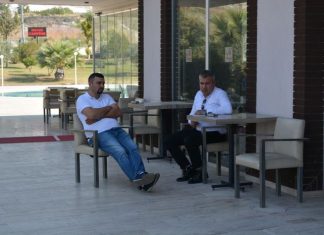52. After the death of Basil the Great (Basil the son of Romanus,**204 whose family inherited the Empire to the third generation) his brother, Romanus’s younger son, succeeded to the throne. He inherited great wealth, for Basil had been emperor for many years, longer than any other sovereign, and had made himself master of many nations whose riches he transferred to the imperial treasury. In Basil’s reign, therefore, the revenues vastly exceeded expenditure; and when he died immense sums were at the disposal of his brother Constantine.
Power inviolate
The latter was already an old man: many years had passed before he finally realized his ambition. Yet, once that ambition was attained, he not only made no attempt to win military renown and add to the dominions he possessed but did not even care to preserve the bounds of his power inviolate. On the contrary, he plunged into a life of pleasure, determined to squander and spend everything, and if death had not quickly carried him off, Constantine alone would have sufficed to the destruction of the Empire.
53. He was the first emperor to corrupt and swell out the body politic, partly by fattening some of his subjects with great wealth, partly by raising them to positions of honour and giving them opportunities to live in depravity and vice. At his death, his kinsman Romanus became emperor, with the intention of being a real autocrat.
The family of the Porphyrogeniti**205 was now extinct, and Romanus’s ambition was to lay firm foundations of a rival dynasty. In order, therefore, that the civil population, as well as the military class, might be ready and willing to accept the principle of hereditary succession in his own family, he proceeded to anticipate their approval with the distribution of largess on a generous scale, thus adding to a body which was already gross, and aggravating the disease, and filling the corrupted part with superfluous fat. His ambitions ended, however, in utter failure, not only in his ideas about his family, but also in his hopes of bequeathing to his descendants a well-organized state.
54. At his death, Michael ascended the throne. He stopped most of the evil practices, but he was not strong enough to deny some small additions of fat to this body, so accustomed to its nourishment of bad juices and unwholesome, fat-making, foods. Even Michael contributed somewhat to its grossness, however niggardly. Doubtless he would have perished on the spot if he had not followed, in some small measure, the policy of his predecessors. On the other hand, had Michael continued a few years longer in power, his subjects would one day have learnt to live wisely. In any case, a bursting-point was inevitable one day, for they were gorged to the limit of well-being.
Read More about Isaac Comnenus 35








